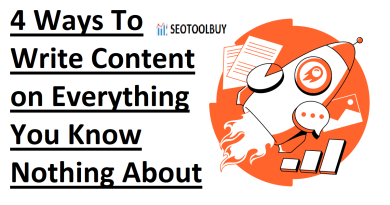5 Reasons Why Keywords Are Still Important
Growing up, I never thought I would find a career I’d fall in love with. In college I had friends who were passionate about practicing medicine, law, accounting, music — but not me. I figured I was destined to punch a clock, collect a check and complain about my job. Fortunately, I got lucky and ended up finding my stride in search marketing.
From day one, I was infatuated with my search marketing career. I’d never loved doing something as much as SEO. “Why?” you may ask.It wasn’t because I loved optimizing Web pages and building links — that’s for sure. It was one simple thing: keywords. I fell in love with keywords.

At my first search gig at iCrossing, I met Jorie Waterman, an amazing mentor. One day as we were talking search, she proclaimed, “We are digital anthropologists.” How cool is that? A few years later, I came across a quote in a book called The Search written by John Battelle: “The Database of Intentions is simply this: The aggregate results of every search ever entered, every result list ever tendered, and every path taken as a result.”
On his website he continues This information represents, in aggregate form, a place holder for the intentions of humankind — a massive database of desires, needs, wants, and likes that can be discovered, subpoenaed, archived, tracked, and exploited to all sorts of ends. Such a beast has never before existed in the history of culture, but is almost guaranteed to grow exponentially from this day forward. This artifact can tell us extraordinary things about who we are and what we want as a culture. And it has the potential to be abused in equally extraordinary fashion.”
Folks, this is digital anthropology, and guess what — it all starts with keywords.
Over the years, the blogosphere and search marketing conferences have been full of so-called experts, claiming that the keyword is dead and is no longer important. It started back in 2008 or so when the movement to end keyword ranking reports caught fire. Now I see the rising tide of “experts” guessing that semantic search will kill the keyword.
I hate to break it to those who think the keyword is going away and becoming irrelevant — it ain’t! And here are five reasons why:
1. Keyword insights make content better
People search with keywords and that’s not changing for the foreseeable future. Even voice search strings are keywords. By understanding the keywords that people use to search, marketers can create richer content online and off. In my experience, I’ve found that using keyword insights in print materials, videos, radio ads, TV spots, etc. makes content more relevant. Sure, outdated methods of using keywords (e.g. keyword stuffing) are no longer appropriate, but keywords sure are! In fact they are a must.
2. Keywords fuel semantic search
Yes, we’ve got semantic mark-up constructs that help search engines better understand entities through content. However, keywords help optimize the entities described in semantic mark-up.
I’m going to steal from my friend Aaron Bradley: “While keywords will continue to play a central role in search — precisely because they do describe things — strategies developed for keywords alone, for strings, are inadequate for the dynamic world of things.” Check out his full article on semantic search (one of the best I’ve read). By understanding how people search for the content, products, services, etc… that you offer and including those terms in your semantic mark-up, you’re helping search engines translate “strings in to things.”
3. Keyword rankings are a compass for performance
Yeah, I’ve heard the mantra, “keyword rankings aren’t important — it’s about website performance.” However, let’s check the math here. If you’re not ranking well for the right keywords, then you can’t generate clicks from the SERPs which cause positive lead and demand generation performance from your website. On the flip-side, if you’re ranking well for important keywords but not seeing it pay off in performance — that may be a signal that your website isn’t working the way it should be. Whether it’s user-experience, technical stability, creative, etc. keywords can help you identify pain points.
4. Keyword rankings help keep the fire lit
When I first started at Deluxe, one of my tasks was to provide SEO guidance on a major rebrand effort. The rebrand effort was a strategic move to evolve in to the highly competitive Web services space. To be honest, I wasn’t sure how successful we’d be in our endeavor to take a big slice of the organic search market share. Here’s why:
- Our link profile was nearly 100% oriented on our core products (checks and business forms)
- Our Web services flagship competitors had been focused on organic search for years and we were just starting
- Google was encrypting more and more of our organic keywords
- Most of our small businesses prefer to call in to our call center to place orders, which makes it difficult to show impact
However, after a year of SEO work, I was proud to be able to show our corporate stakeholders that we had earned first page Google rankings for a significant number of competitive terms. Furthermore, in conjunction with the visibility of those key terms, we’ve seen a major boost in organic traffic to our Web services pages. By the way, thanks Semrush for your awesome tool which helped me showcase our success. These keyword rankings have brought a much needed sense of optimism and encouragement to the investment Deluxe has made in organic search. It shows we are a contender and who knows what awesomeness the future will bring.


5.Keywords power link building and social influencer acquisition
Long gone are the days where it was easy to reach out to Webmasters and acquire links. Webmasters are inundate with links request and SPAM SEOs and automated bots. I get it every day on my site. Furthermore, the amount of comment SPAM is off the charts. This makes it hard for legitimate SEOs to work with Webmasters in the old-school way of link building. This means it’s incumbent on us SEOs to find new and creative ways of finding link opportunities.
Getting back to keywords — we use highly targeted keywords and slick tools to find social influencers and bloggers to build relationships with. Keywords help us reach the right audience and craft our communication whether verbally or written, in the most appropriate way. Without using keywords, our link building efforts would be in vein.
In conclusion, I could have written this article on 20 reasons why keywords are still important, but I’d love for you to share some of the ways you’re using keywords in the comments section.
I hope this article was helpful! If it was, please share it with your community or leave a comment. I look forward to hearing from you



reuiTYWkmSxJQMp
miGLHcJAXEY